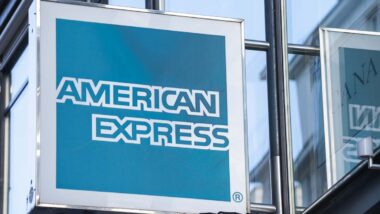Top Class Actions’s website and social media posts use affiliate links. If you make a purchase using such links, we may receive a commission, but it will not result in any additional charges to you. Please review our Affiliate Link Disclosure for more information.

In a recent anticoagulant study, experts observed that Eliquis was far superior to Warfarin in preventing blood clots by 69 percent. The study also showed a 50 percent reduction in internal bleeding events, which means that Eliquis was shown to be less likely to cause internal bleeding than Warfarin. The researchers stated that Eliquis may be the safest among the new generation anticoagulants.
The new generation anticoagulants like Eliquis have been shown to be faster acting than Warfarin, and they also lack the requirement of frequent medical check-ups for dose adjustments like Warfarin.
In comparison to Warfarin, Eliquis and the other newer anticoagulants are given in a constant dosing schedule, where Warfarin had to be adjusted regularly. Even though Warfarin was less convenient, many patients are starting to prefer it due to the growing number of injury reports surrounding Pradaxa and Xarelto.
Overview of Anticoagulant Complications
Millions of patients have reported suffering internal bleeding events after being prescribed a new generation anticoagulants, due to the lack of reversal agent. However, despite the risk, many patients still choose newer anticoagulants over Warfarin, which has led to mass concern from the FDA and medical community.
Warfarin was the only blood thinner on the market for the last 60 years, which required patients to regularly visit their physicians and have frequent dosing adjustments. However, in 2010, Pradaxa was approved by the FDA to treat patients with atrial fibrillation and to prevent clotting in patients who had recently undergone knee surgery. It was the first anticoagulant to be approved in the United States since Warfarin’s approval.
Initially, Pradaxa was a success to both the patients and the medical community, garnering millions for Boehringer Ingelheim. After seeing the success of Pradaxa, other pharmaceutical companies had begun trying to break into the anticoagulant market, with several successes in Xarelto and Eliquis.
Xarelto was approved by the FDA in 2011 and was released as a joint effort by Bayer and Jansen Pharmaceuticals. It proved to be a greater success than Pradaxa, even though it treated the exact same conditions and was advertised to have the same benefits as Pradaxa. With all this initial success, it is easy to understand why Pfizer and Bristol-Myers had aimed for the same success with Eliquis in 2012.
However, it is interesting to note that as Xarelto and Eliquis were being approved, Pradaxa was facing a major public backlash for lacking in one major benefit that Warfarin had. This of course was the reversal agent, which would prevent the case of irreversible bleeding events that could have fatal results.
Another feature that the newer anticoagulants lacked was that they did not require frequent doctor visits and dose adjustments, and instead allowed patients to intake the drugs at a constant dose.
While Eliquis may be brand new to the market, patients and medical experts are wary that it may be likely to have the same results that Pradaxa and Xarelto did. Due to failing to warn patients about the lack of bleeding agents, millions of patients have filed bleeding lawsuits against the manufacturing companies with product liability charges. It remains to be seen if Eliquis patients are due to suffer the same complications.
Do YOU have a legal claim? Fill out the form on this page now for a free, immediate, and confidential case evaluation. The Eliquis attorneys who work with Top Class Actions will contact you if you qualify to let you know if an individual lawsuit or Eliquis class action lawsuit is best for you. [In general, Eliquis lawsuits are filed individually by each plaintiff and are not class actions.] Hurry — statutes of limitations may apply.
Get Help – It’s Free
Join a Free Eliquis Class Action Lawsuit Investigation
If you or a loved one took Eliquis (apixaban) and suffered injuries such as uncontrollable internal bleeding, gastrointestinal bleeding, hemorrhaging, kidney bleeding or death, you may have a legal claim. See if you qualify by filling out the short form below.
An attorney will contact you if you qualify to discuss the details of your potential case at no charge to you.
Oops! We could not locate your form.
ATTORNEY ADVERTISING
Top Class Actions is a Proud Member of the American Bar Association
LEGAL INFORMATION IS NOT LEGAL ADVICE
Top Class Actions Legal Statement
©2008 – 2024 Top Class Actions® LLC
Various Trademarks held by their respective owners
This website is not intended for viewing or usage by European Union citizens.












